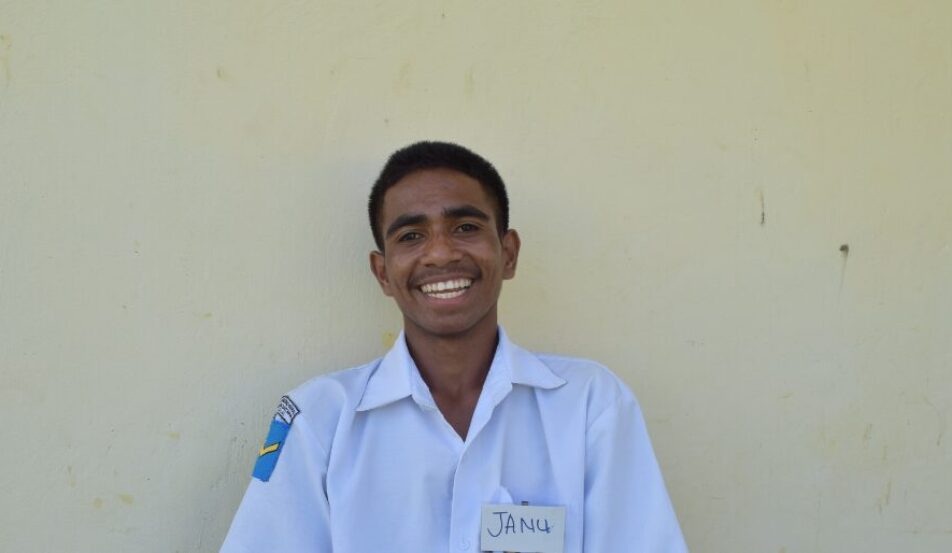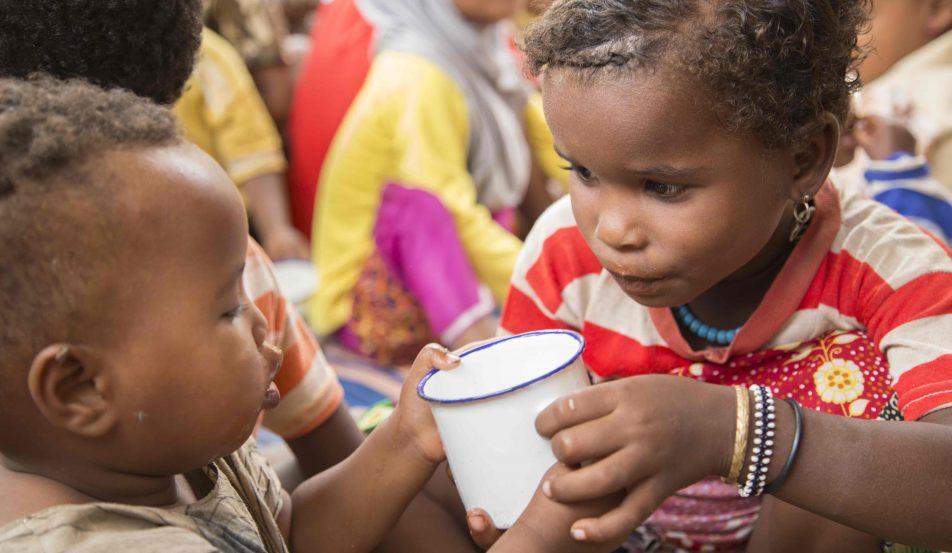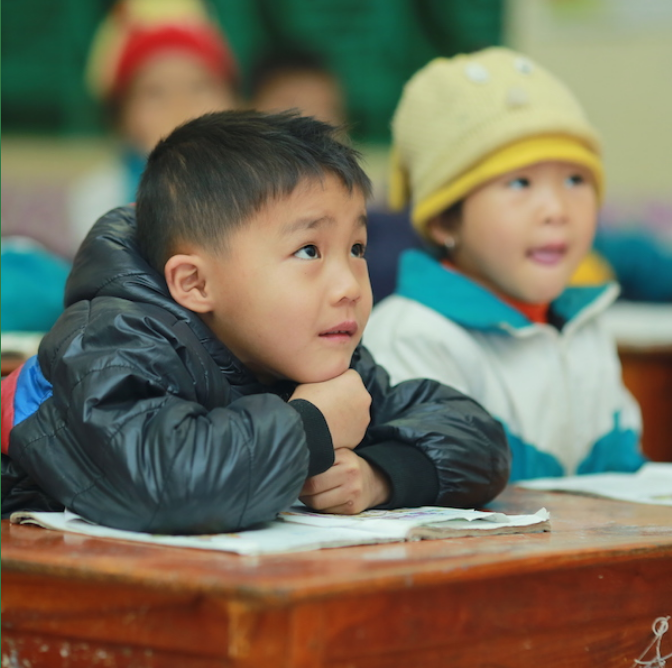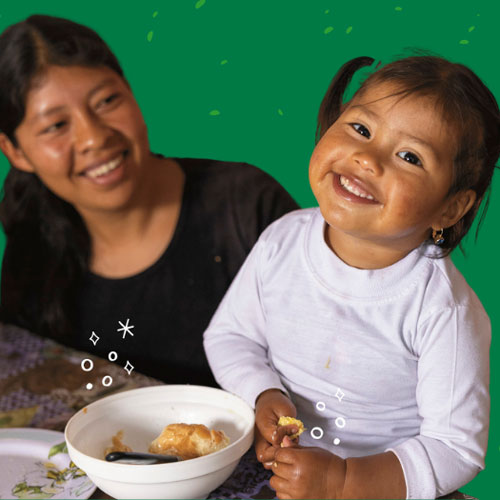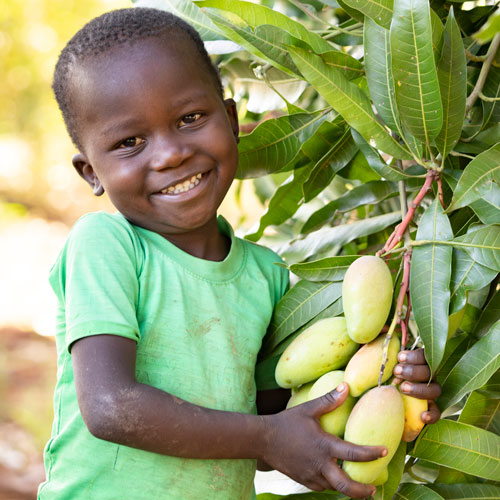Joshua’s parents – Christine and Richard – woke up at 2am every day to collect water from a river almost two kilometres away, the community’s nearest water source.
Sometimes when they arrived at the river it would be infested with crocodiles or worse, there would be little water left.
“If you hadn’t woken up early enough, you would find your friends and neighbours had collected all the water,” Christine said. It was then another two-kilometre walk to the second water source along the river.
The couple made seven trips to the river a day between them, balancing a 20L bucket on their heads back home each time.
“There were times we would go without water. We would go and beg very far away.”
– Christine, Joshua’s mother
Their days were 16-hours long, split between collecting water and working on a small field where they grew maize and vegetables to eat.
There was little time left to care for their children, leaving their eldest – Joshua – to look after his sisters.
Kenneth, the deputy head of Joshua’s community and a ChildFund Zambia Parent-Family Educator Volunteer, said many families like Joshua’s had no choice but to leave their children at home during the day.
“If they can’t go to work in the field, there will famine,” Kenneth said. “There will be a lot of hunger because they depend on going to the field to work so they can eat. If they can’t go there as often as they should, then poverty sets in.”
Painful memories
In addition to having to travel kilometres to the river, Joshua and his family got sick or suffered from diarrhoea almost every day from drinking the water.
Joshua recalled having terrible stomach aches. “I didn’t know what the pain was, so I was scared,” he said.
Globally, diarrhoea is the second leading cause of death in children under five years old, killing around 525, 000 children every year.
The prevalence of illnesses and diarrhoea as a result of drinking unsafe water compounds the risk of families in remote communities like Joshua’s falling into poverty.
“Life wasn’t good,” Kenneth recalled. “You can’t stay well when someone is having diarrhoea. Instead of going to the field, we had to go now to the health clinic.”
Dangers of the dry season
The only thing worse than getting sick from drinking unsafe water, is not having any water at all.
During the dry season in Zambia, the lack of rain can make accessing water a nightmare in rural communities.
Sometimes the river in Joshua’s community dried up completely, and families would use hoes and picks to dig under the river bed.
“There were times we would go without water,” Christine said. “We would go and beg very far away.”
The only thing worse than getting sick from drinking unsafe water is not having any water at all.




